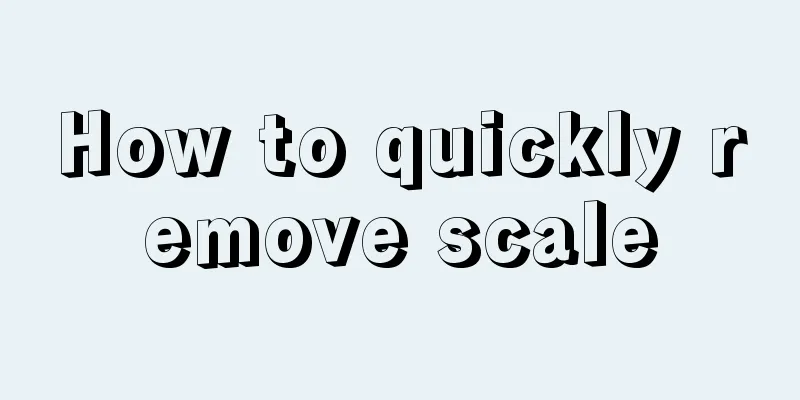Why do patients with kidney disease take hormones

|
The kidney is a relatively important organ, but it may also be prone to some diseases. Once it is confirmed that you have kidney disease through examination in a regular hospital, you usually need to take hormones for treatment. Some people may not particularly understand why people with kidney disease need to take hormones. People believe that taking hormones can have great side effects on human health. In this case, why do people with kidney disease need to take hormones? Most kidney diseases are closely related to immune response and inflammatory response. Most kidney diseases are damage caused by immune response and inflammatory response. The most common is the deposition of circulating immune complexes in kidney tissue, or the antigens of the glomerulus itself becoming the target of immune response, etc. There is also kidney damage caused by various inflammatory cells and inflammatory mediators. Therefore, the most common kidney diseases are more or less related to the immune system, so appropriate anti-inflammatory and immune system suppression according to the condition can achieve good therapeutic effects. "Hormone" has miraculous effects. In clinical practice, if "hormone" is mentioned alone once, in most cases it refers to the glucocorticoids secreted by the adrenal cortex, which has nothing to do with the sex hormones such as estrogen and testosterone mentioned in the question. This hormone is also synthesized and secreted by the human body under normal circumstances. Common glucocorticoid drugs include dexamethasone, hydrocortisone, prednisone, methylprednisolone, etc. Glucocorticoids are very important drugs in modern medicine with a wide range of physiological and pharmacological effects. In kidney disease, their anti-inflammatory and immunosuppressive effects are mainly used to combat damage. Sometimes even more powerful immunosuppressants such as cyclophosphamide are needed to save lives and slow the progression of kidney disease. Of course, there are some kidney diseases that do not prefer hormone therapy as the first choice, and specific problems need to be analyzed specifically. Long-term and high-dose use of hormones has side effects. Long-term and high-dose use of glucocorticoids has an obvious side effect - drug-induced Cushing's Syndrome. Its symptoms are the same as those of hyperadrenocortical hyperfunction, which can be summarized as "moon face", "buffalo hump", "central obesity", "thin skin", etc. The weight of this type of patients is generally within the normal range, but their body fat is more distributed on the face and trunk, and their limbs are not fat. The mechanism of this peculiar fat distribution has not been fully studied. The current findings are: the limbs are more sensitive to glucocorticoids, which increase the fat metabolism in the limbs, but overall the fat in these patients increases. Medicine is a process of weighing pros and cons. So why do we still need to use hormones for a long time? This is medicine, we have to weigh the pros and cons. Kidney damage is generally irreversible. If hormones/immunosuppressants are not used in a timely and sufficient manner, some aggressive kidney diseases can be fatal in a short period of time. Those that come slowly will develop to the point where no matter how much they are used, there will be no kidney function after some time, and they can only be treated with repeated blood purification treatments. The side effects of taking hormones for kidney disease are as follows: (1) Gastrointestinal mucosal bleeding: Long-term use of hormones can damage the gastric mucosa, stimulate gastric acid secretion, cause gastritis or gastric ulcers, and damage the entire digestive system. (2) Lowered blood sugar leads to renal diabetes. Most kidney disease patients who temporarily take hormones know that during laboratory tests, they will find lowered blood sugar and urine sugar. This lowering of blood sugar constitutes steroid-type diabetes. (3) Low blood pressure leads to renal hypertension. Temporary use of hormones can cause water and sodium (salt) to be retained in the body's tissue fluid and cannot be excreted from the body. This is equivalent to "raising the water level" in the blood vessels, increasing the pressure, and of course increasing the blood pressure, resulting in renal hypertension. (iv) Osteoporosis and femoral head necrosis: The use of hormones can cause bone calcium to become free, leading to osteoporosis, which is a common side effect. Patients with more severe side effects may experience sequelae such as femoral head necrosis. (5) Low immunity; patients are prone to fatigue and are prone to catching colds which do not heal repeatedly. (6) Physical excitement: Many kidney disease patients become highly excited after taking hormone drugs and cannot sleep for months. (VII) Central obesity: Central obesity is probably the most obvious side effect of hormones. Temporary high-dose use of hormones can trigger a redistribution of fat, leading to fat accumulation that manifests as a moon face, buffalo hump, and thin legs with a fat torso. |
>>: Azithromycin for nephritis
Recommend
What causes dull chest pain?
A dull pain in the chest is a common symptom amon...
Bone bulge on the little finger joint
The bone bulge on the little finger joint may be ...
Is it good to have a red face after running?
Many people may have a red face after exercise, w...
What are the chemotherapy options for nasopharyngeal carcinoma?
Nasopharyngeal carcinoma is not unfamiliar to man...
Why do I have back pain after cupping?
Cupping is a therapy in Chinese Traditional Medic...
How to determine inflammation after ear piercing
Ear piercings are very prone to inflammation, esp...
What foods are good for dizziness and low blood pressure?
Low blood pressure can easily lead to dizziness, ...
Are pears a cold fruit?
You are a common fruit in fruit stores or homes b...
Doesn't smoking make you taller?
Height has a huge impact on a person's temper...
Postoperative follow-up of renal cancer patients can be divided into 3 stages
Kidney cancer patients must have regular checkups...
9 methods of daily family health massage
Here are some massage methods: 1. Dry face cleani...
Is it normal to feel pain all over the body after a massage?
As the pressures of society and life increase, pe...
What is the use of adding salt to washing clothes?
Salt is the most common condiment in life. It is ...
How to treat diseases left over from confinement
If the mother is not properly cared for during th...
How to effectively treat myositis ossificans
Myositis ossificans is an abnormal ossification p...









